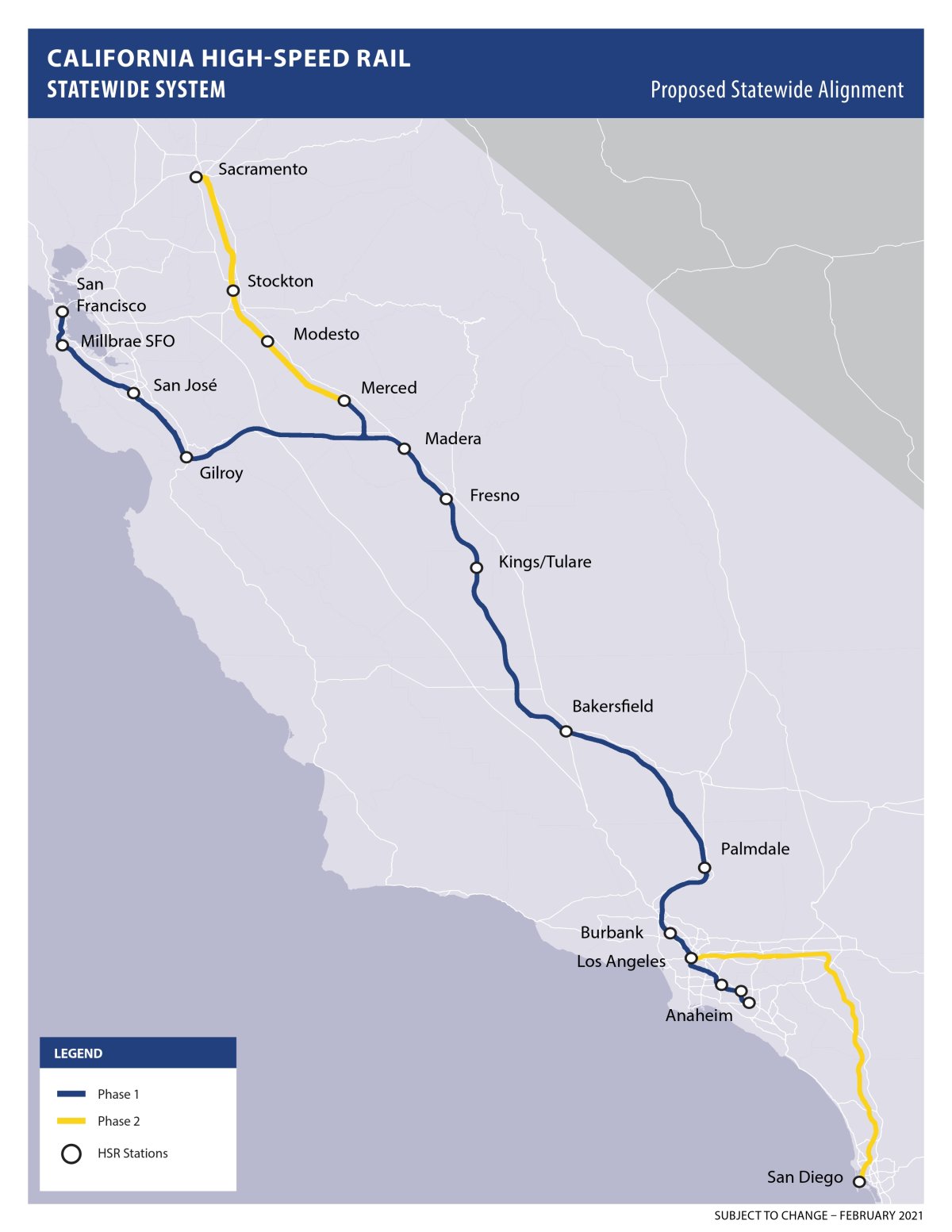California
California’s proposed shoplifting law would be a disaster

Thomas Baltimore Jr., the chairman and CEO of Park Hotels and Resorts,
announced
earlier this month that his company would stop paying a $725 million loan on two of San Francisco’s largest hotels, Hilton San Francisco Union Square and Parc 55.
Baltimore
cited
low demand and “concerns over street conditions” as reasons to stop payments on the hotels, which will be returned to the lender.
CONGRESS CAN DO MORE TO PREVENT MEGAFIRES
The decision is another blow to downtown San Francisco and California, which has experienced a massive outflow of people and businesses. In fact,
the list of companies
that have left the Golden State is far too long to enumerate in a single article and includes established Fortune 500s such as Hewlett-Packard, Chevron, and Pabst Brewing, as well as rapidly growing ones such as Snowflake, Palantir, and Tesla.
There’s no single reason companies are abandoning California in droves. Aggressive lockdown policies likely didn’t help, and California’s tax and regulatory climate also played a role. And then there is the problem of crime, which Park Hotels
discreetly sidestepped
.
Few would deny crime is a growing concern in the Golden State, especially in major cities. In 2021, New York Times journalist Thomas Fuller went to a San Francisco Walgreens to buy a toothbrush and saw a man walk into the store, grab a bunch of beef jerky, and walk out.
“I’m new to San Francisco,” Fuller said to the clerk. “Is it optional to pay for things here?”
Fuller was referring to what he called an “
epidemic of shoplifting
,” which he traced to changes in California law that reclassified thefts as misdemeanors if the stolen goods totaled less than $950. Videos on social media
show people
walking into stores, loading up on goods, and walking out.
The culture has caused companies such as Walgreens, which
shuttered 22 stores in San Francisco alone
over a period of five years, to cease doing business in many of these locations. Many accused Walgreens of “crying wolf” on the matter of retail theft, and California lawmakers recently made it clear they don’t take the matter seriously.
Earlier this month,
the California Senate passed Bill 553
, legislation that would discourage retail store employees from confronting shoplifters. The legislation — passed weeks after a Home Depot security guard
was shot and killed
during a Pleasanton, California, robbery — is designed to protect employees, supporters say, by forbidding employers from instructing employees to confront shoplifters.
“What we’re saying in the bill is it’s not OK for employers to take a rank-and-file worker, somebody whose job is really something else … and say, ‘Hey, you know, if there’s an intruder, we’re going to deputize you to intervene,’” California state Sen. Dave Cortese told a local news station.
Even accepting Cortese’s argument that the legislation doesn’t prevent employees from intervening in cases of theft and only makes it unlawful for employers to ask employees to stop thieves from stealing, the legislation would be disastrous.
A law that would prohibit employers from telling their employees that customers are not allowed to take whatever they want without paying would clearly incentivize shoplifting. It would further promote the culture Fuller described, one in which it is viewed as “optional” to pay for things.
This is the culture that is driving companies out of California. It’s not just crime or high taxes or pandemic mandates. It’s a culture that shows disdain for property rights, which are
the wellspring of all human rights
and a pillar of civilization.
“The moment the idea is admitted into society that property is not as sacred as the laws of God and that there is not a force of law and public justice to protect it, anarchy and tyranny commence,” John Adams famously wrote in 1787. “If ‘Thou shalt not covet,’ and ‘Thou shalt not steal,’ were not commandments of Heaven, they must be made inviolable precepts in every society, before it can be civilized or made free.”
California lawmakers have shown utter contempt for property rights for years. Making it illegal for employers to instruct employees to stop customers from stealing is just the latest example.
Until California changes this culture and demonstrates it respects the property rights of people and businesses, it will continue to decline — and lose beautiful hotels such as Hilton San Francisco Union Square and Parc 55.
CLICK HERE TO READ MORE FROM THE WASHINGTON EXAMINER
Jon Miltimore (
@miltimore79
) is the managing editor of FEE.org.

California
Lights back on after power outage in parts of Southern California

Watch CBS News
Be the first to know
Get browser notifications for breaking news, live events, and exclusive reporting.
California
How California’s high-speed rail line will advance in 2025

California’s high-speed rail project, which aims to connect San Francisco and Los Angeles with a 494-mile route capable of speeds up to 220 mph, aims to continue construction in 2025.
Phase 1 of the project focuses on linking San Francisco in the north to Anaheim via Los Angeles in the south, with plans to extend the line north to Sacramento and south to San Diego in Phase 2.
The California High-Speed Rail Authority, which is overseeing the project says it has already generated significant economic benefits, including creating over 14,000 construction jobs and involving 875 small businesses.
But despite its transformative goals, the project remains politically contentious, with critics questioning its costs and viability. It has been in development since voters approved funding in 2008 and has faced delays, cost increases, and shifting timelines.
Photo Illustration by Newsweek
Work Planned for 2025
In a statement to Newsweek, the California High-Speed Rail Authority outlined its planned work for 2025, which focuses on continuing construction in the Central Valley between Merced and Bakersfield.
The 171-mile segment between Merced and Bakersfield will be the first part of the line to be operational, with services expected to start between 2030 and 2033. Of that section, 119 miles are currently under construction.
Of the planned structures in the Central Valley section, 85 are underway or completed out a total of 93 on the segment. Work will continue on these structures as well as on the tracks capable of handling high-speed trains.
By the end of 2025, civil construction on the 119-mile segment currently underway is expected to be completed and construction will begin on the next stretches to Merced and Bakersfield.
In 2025, the authority also plans to advance design and begin construction on its stations in the Central Valley. It also expects to select a manufacturer for the trains.
Although the initial operating segment will only run 171 miles from Merced to Bakersfield, environmental clearances have been obtained for 463 miles of the 494-mile Phase 1 route, completing the stretch between San Francisco and Los Angeles. Only the Los Angeles-to-Anaheim section is still awaiting approval.

California High Speed Rail Authority
The Authority said it plans to publish its draft environmental impact report for the Los Angeles-to-Anaheim section in 2025, a key milestone for the eventual full-approval of Phase 1.
More than $11 billion has been invested to date, with funding sources including state bonds, federal grants, and proceeds from California’s carbon emission trading auctions.
The authority has not yet received funding to construct the segments westwards from the Central Valley to the Bay Area or southwards to Los Angeles.
Despite this, the authority said it was committed to pushing on.
“California is the first in the nation to build a true high-speed rail system with speeds capable of reaching 220 mph,” the Authority told Newsweek. “The Authority remains committed and aggressive in moving this historic project forward while actively pursuing additional funding.”
Political Opposition to the Project
Despite ongoing progress, the high-speed rail project continues to face political opposition, particularly from Republican leaders.
While President Joe Biden’s administration has invested billions in it since 2021, the incoming Republican administration, which will control the House of Representatives, the Senate, and the presidency, is unlikely to continue funding it at the same level.
Representative Sam Graves of Missouri, who chairs the House Transportation and Infrastructure Committee, has criticized the project’s costs and funding strategies.
In a statement to Newsweek, Graves described the rail line as a “highly troubled project” and raised concerns about its reliance on government subsidies.

California High Speed Rail Authority
He pointed out that the current funding supports only a limited segment between Merced and Bakersfield, which he estimated will cost $35 billion.
“Full cost estimates [for Phase 1, between San Francisco and Anaheim] now exceed $100 billion and growing,” Graves said, calling for a comprehensive review of the project before any additional funding is allocated.
“California high-speed rail must have a plan and prove that it can wisely and responsibly spend government money—something it’s failed to do so far.”
The congressman stated that over the next four years, he would oppose any further federal funding for the California high-speed rail project.
Instead, Graves advocated for efforts to redirect unspent funds and focus on improving existing transportation infrastructure, such as Amtrak.
Graves also emphasized the need for private-sector involvement in future rail projects, citing Brightline’s operations in Florida and Las Vegas as a successful example of private investment.
While Graves acknowledged the potential of high-speed rail, he argued that the California project has failed to meet the necessary criteria for viability and local demand.
The authority told Newsweek it would engage with the federal government to seek other funding sources.
“We continue to explore strategies aimed at stabilizing funding, potentially allowing the program to draw private financing and/or government loans,” it said.
California
Hawaii resident flies to California to clear name from identity theft

HONOLULU (HawaiiNewsNow) – A Honolulu man who had his identity stolen had to fly to California to clear his name. He acted quickly to stop his bank account from being completely drained.
Jamie Dahl said he’s speaking out because identity theft can happen to anyone and he’s not sure how his personal information was stolen.
“I’m still mystified how he pulled it off,” Dahl said.
In late November, Dahl found some fraudulent charges on his credit card so he ordered a replacement card.
Two weeks later, he says went to his online bank account with Bank of America and discovered his identity had been stolen. The hacker had account access for instant money transfers.
“My phone number is missing, my email is missing, my mailing address. I live in Honolulu. It’s Mililani,” Dahl said.
He knew he was in trouble.
Dahl said two days after his discovered his identity had been stolen, he had to fly to California to clear his name because there are no Bank of America branches in Hawaii.
He brought several forms of ID to re-authenticate himself.
“It was just an incredible ordeal,” he said.
“The bad guys are shopping just like everybody else for Christmas,” said former HPD Deputy Chief John McCarthy, who investigated cybercrime.
McCarthy says check your bank account daily and having a local bank is helpful.
“If you don’t have a local bank, you are that much father away. I’ve had problems with banks that are on the East Coast,” he said.
“It takes a day to communicate with them, a day to get a response. That’s a lot of damage you can do in 24, 48, 72 hours,” McCarthy added.
McCarthy says most banks have streamlined their re-authentification process so you don’t have to see them in person.
Hawaii News Now contacted Bank of America to find out their process and are waiting to hear back.
Copyright 2024 Hawaii News Now. All rights reserved.
-
/cdn.vox-cdn.com/uploads/chorus_asset/file/24924653/236780_Google_AntiTrust_Trial_Custom_Art_CVirginia__0003_1.png)
/cdn.vox-cdn.com/uploads/chorus_asset/file/24924653/236780_Google_AntiTrust_Trial_Custom_Art_CVirginia__0003_1.png) Technology4 days ago
Technology4 days agoGoogle’s counteroffer to the government trying to break it up is unbundling Android apps
-

 News6 days ago
News6 days agoNovo Nordisk shares tumble as weight-loss drug trial data disappoints
-

 Politics6 days ago
Politics6 days agoIllegal immigrant sexually abused child in the U.S. after being removed from the country five times
-

 Entertainment6 days ago
Entertainment6 days ago'It's a little holiday gift': Inside the Weeknd's free Santa Monica show for his biggest fans
-

 Lifestyle6 days ago
Lifestyle6 days agoThink you can't dance? Get up and try these tips in our comic. We dare you!
-

 Technology1 week ago
Technology1 week agoFox News AI Newsletter: OpenAI responds to Elon Musk's lawsuit
-
/cdn.vox-cdn.com/uploads/chorus_asset/file/25672934/Metaphor_Key_Art_Horizontal.png)
/cdn.vox-cdn.com/uploads/chorus_asset/file/25672934/Metaphor_Key_Art_Horizontal.png) Technology24 hours ago
Technology24 hours agoThere’s a reason Metaphor: ReFantanzio’s battle music sounds as cool as it does
-

 News2 days ago
News2 days agoFrance’s new premier selects Eric Lombard as finance minister




















